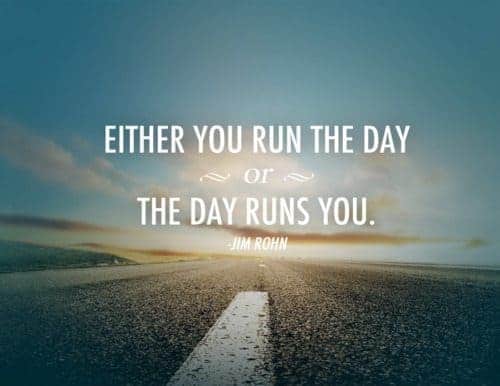How To Watch The News Without Getting Depressed & Angry
Are you a news junkie?
Perhaps you keep the TV news on in the background as you get things done around the house.
Do you check your favorite news app on your phone throughout the day?
Yep, many of us do it.
Technology today can keep us continuously informed and connected to all that is going on in the world.
How could that be bad?
Right?
Well, unfortunately, the vast majority of news stories report on negative news events.
In isolation, it isn’t much of an issue, after all without the bad we would not fully appreciate the good.
However, when we are continuously bombarded with images of violence, accidents, fires, and other negative news events it can take a toll on our emotions.
Do you get depressed & angry when watching the news?
Think of your brain as a big spam filter.
You are being bombarded with so much information that you can’t possibly process everything that happens around you at all times.
This is where the filter comes in.
Your brain decides what to filter out and what to take in by what you provide it with, knowingly or not.
For example, have you ever had that experience where you began shopping for a new car? You decide you want a specific make and model and color and all of a sudden every time you drive around you notice everyone seems to be driving your car!
Wow, has everyone just purchased the same car all of a sudden?
Probably not.
You just noticed them because you have been researching and looking at this particular car and your brain has now added this item to the list of things you want to notice.
Related: Negative Effects Of Social Media
What does that have to do with the news?
We noticed the car because we had been paying attention to it.
Well the more we consciously watch and read about tragedies and other negative news events, the more we notice them.
So now what can we do?
First, have balance.
You don’t need to necessarily stop all news media.
Being aware of current events has its advantages.
However, you want to watch the number of negative stories you consume.
Look to balance it by seeking out uplifting and motivating stories and articles.
Like this one!
Look for the bright spots
It is easy to think about what goes wrong in a day, but what about what goes right?
Can you identify good news as easily as bad?
If I asked you right now to make a list of 10 things that happened today.
What would you write?
Go ahead and try it.
If you are like many of us, that list has more negative events than positive.
If that is you, then it’s time to start telling your brain you want to notice more positive, motivational and uplifting things!
Start by restart by recognizing the good stuff!
Spend a few minutes asking yourself what went well today?
What am I grateful for?
Why is that important to me?
This exercise, called “Three Blessings” is from Dr. M Seligman’s book, Flourish, A Visionary New Understanding of Happiness and Well-being.
Dr. Seligman goes on to say,
“For sound evolutionary reasons, most of us are not nearly as good at dwelling on good events as we are at analyzing bad events.
Those of our ancestors who spent a lot of time baking in the sunshine of good events, when they should have been preparing for disaster, did not survive the Ice Age.
So to overcome our brains’ natural catastrophic bent, we need to work on and practice this skill of thinking about what went well.”
So what are some ways we can practice this skill?
Start simple by identifying the things you are grateful for each day.
Keeping a journal is a great way to practice recognizing what went well.
Spend a few minutes a day identifying the bright spots of each day.
Then you can start to send your brain the message that this is what you want to see more of!
Keeping a gratitude journal where you identify the good parts of your day is easy to do.
You don’t need to have big monumental stuff every day to write about.
Big important bright spots are nice, like getting a promotion at work or winning an award of some sort, however, the little things can also have an impact.
Did you find an extra few dollars in your jeans pocket, or maybe you ran into an old friend at the coffee shop?
For most of us, little events like that come and go throughout our day and we don’t take the time to stop and savor the positive impact of those little moments.
Every night I practice finding the bright spots with what I call “Fill Your BAG Happy.”
Negative images, stories, and events collect in an imaginary BAG throughout the day.
At the end of each evening, my children and I visualize emptying our BAG and refilling it up with the bright spots of the day.
We use the letters BAG to identify the B- Best part of the day, A – what we Accomplished, and G – what we are grateful for.
Make the effort to identify and savor the bright spots in your day and practice thinking about what went well!
You don’t need to give up your news feed, just sprinkle in positive stories and articles providing a better balance and don’t forget to spend a few minutes a day filling your BAG happy with your bright spots!












Taylor Abrams
December 27, 2022 at 7:30 PM
It is true that being current on events has its benefits. This is why I watch crime news almost every night to be aware and informed about the happenings in my area. It may be disheartening at times but finding the balance, as you said, is important when watching the news.